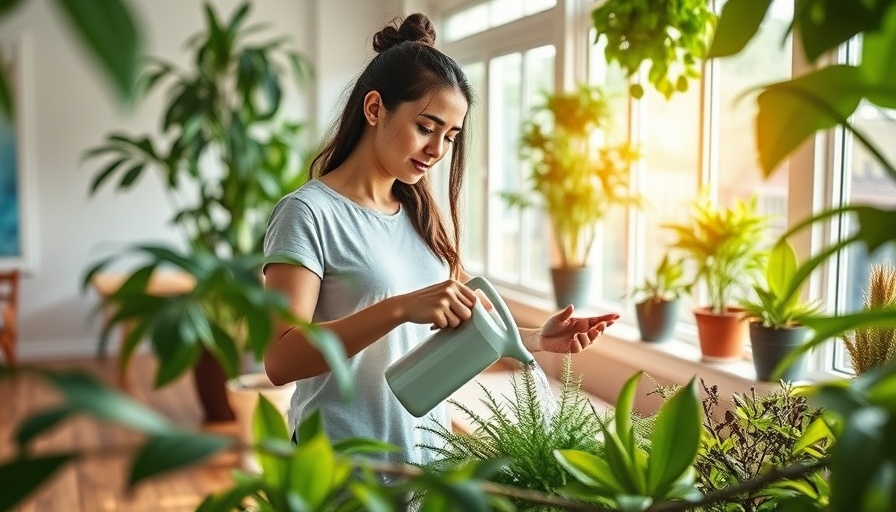
Plants: More Than Just Green Companions
For centuries, the understanding of plants revolved around their role as passive organisms in the ecosystem. However, recent research challenges this perception, revealing that plants are intricate beings capable of memory, communication, and even mood influences. As we delve into this fascinating world, we learn not just about the biology of plants but also about their profound implications on our health and wellness.
Unlocking the Memory of Plants
One of the most intriguing discoveries is that plants can "remember" environmental conditions. For instance, sunflowers exhibit a remarkable behavior where they track the sun throughout the day and return to their starting position at night. This behavior is further exemplified by the albizia tree, whose leaves respond rhythmically to daylight cycles even when deprived of light. This ability to adapt and respond suggests a form of memory essential for their survival. Elizabeth Van Volkenburgh from the University of Washington highlights the potential of these discoveries. She argues that understanding plant memory can encourage us to interact more thoughtfully with our ecosystems.
Plants as Natural Timekeepers
Beyond memory, plants exhibit an impressive capability to measure time, a function essential for their growth cycles. For instance, certain seeds will only germinate when specific nighttime conditions are met, acting almost as biological calendars. For example, begonia seeds will not sprout without the proper dark duration. Even more astonishing is the synchronization of bamboo, which blooms and dies at the same time globally despite varying local conditions. This understanding emphasizes the sophisticated adaptations plants have developed over millennia.
The Communication of Plants: A Hidden Language
Perhaps most astonishing is the revelation that plants communicate through chemical signals. When under threat, for instance, certain plants release chemicals into the air to warn nearby neighbors of impending danger. This communication can trigger defensive behaviors in neighboring plants, showcasing an intricate network of support among plant communities. Such behaviors emphasize the idea that plants are not isolated organisms but rather integral parts of a complex ecosystem.
Choosing the Right Indoor Plants for Your Well-Being
Understanding plant behavior can also influence our choices in nurturing indoor green spaces, particularly for health-conscious individuals. A study from the University of Reading identified Ficus benjamina (weeping fig), Dypsis lutescens (areca palm), and Epipremmum aureum (golden pothos) as the most relaxing indoor plants, demonstrating that selecting the right plant can elevate our emotional and mental health.
Connecting with Nature: Why It Matters
This newfound understanding of plant intelligence can reshape our environment and how we approach wellness. Embracing the benefits of plants can enhance our living spaces, promote mental clarity, and provide a soothing presence in our homes. By incorporating greenery into our lives, we foster a connection to nature that nurtures our spirit and well-being.
Actionable Steps: Nurturing Your Inner Green Thumb
As you consider adding plants to your home, begin by researching which types resonate with your lifestyle and space. Consider starting with low-maintenance varieties if you're new to indoor gardening. Observe their growth patterns and become attuned to their needs. Beyond aesthetics, think of this as an opportunity to foster companionship with living entities that can contribute positively to your health.
Conclusion: Transforming Spaces Through Plant Awareness
Understanding the intelligent behaviors of plants offers new insights into our health and wellness. With this knowledge, we can better appreciate our flora companions and integrate their benefits into our daily lives. The next time you interact with plants—be it watering, pruning, or simply enjoying their presence—recognize that they are active participants in our well-being.
To enhance your lifestyle and mental wellness, consider cultivating your green thumb with plants that suit your environment. Growing plants isn’t just about decoration; it’s an opportunity to connect with nature and boost your mental health every day.
 Add Row
Add Row 
 Add Element
Add Element 


Write A Comment